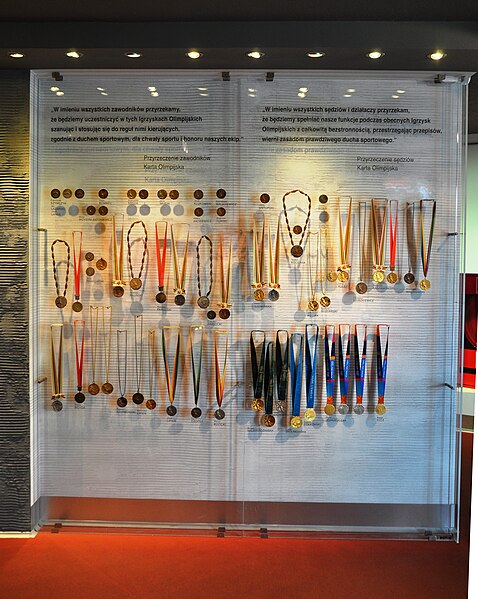An Olympic medal is awarded to successful competitors at one of the Olympic Games. There are three classes of medal to be won: gold, silver, and bronze, awarded to first, second, and third place, respectively. The granting of awards is laid out in detail in the Olympic protocols.
A silver medal awarded to the winner of an event at the first modern Olympic Games in 1896.
A silver medal from the 1900 Summer Olympics, designed by Frédérique Vernon
A collection of medals won by Polish athletes, at the Museum of Sport and Tourism in Warsaw
The bronze medal from the 1980 Summer Olympics showing Cassioli's obverse design portraying Nike, the Greek goddess of victory
The modern Olympic Games or Olympics are the leading international sporting events featuring summer and winter sports competitions in which thousands of athletes from around the world participate in a variety of competitions. The Olympic Games are considered the world's foremost sports competition with more than 200 teams, representing sovereign states and territories participating; by default the Games generally substitute for any World Championships the year in which they take place. The Olympic Games are held every four years; since 1994, they have been alternated between the Summer and Winter Olympics every two years during the four-year period.
The Ancient Olympic Games stadium in Olympia, Greece
Pierre de Coubertin, co-founder of the International Olympic Committee and its second president
Evangelos Zappas, co-founder of the International Olympic Committee
The opening ceremony of the 1896 Summer Olympics in Panathinaiko Stadium in Athens








